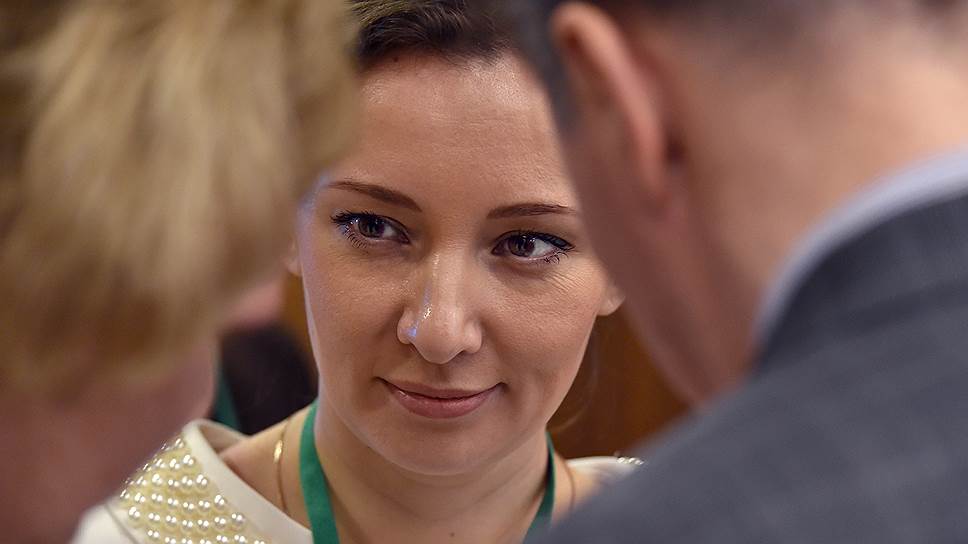Ombudsman proposed to block ads with potentially dangerous children's products

Anna Kuznetsova. Source: Kommersant
Today it became known that the children's ombudsman, Anna Kuznetsova, proposed to the Prosecutor General of the Russian Federation, Yuri Chaika, to initiate the procedure for banning the sale of children's goods not certified in the Russian Federation. In particular, such ads are placed on AliExpress, Pandao, Joom and Yandex.Market, as reported by Kommersant. For example, children's dishes made of melamine and polycarbonate, hats for newborns made of synthetics and other goods are considered potentially dangerous.
The sites mentioned above oppose blocking, claiming that the products are certified in the country of origin. The proposal was sent by the ombudsman at the end of September, stating that it is a question of blocking not the marketplaces themselves, but only those of their segments, which contain information about prohibited goods. The ombudsman should receive an answer to her proposal by the end of October.
Kuznetsova believes that it is necessary to create a specialized platform on which only those products that have been certified and which have a quality guarantee will be presented.
It is worth noting that the ombudsman is not alone in terms of attempts to protect children by blocking advertisements for the sale of goods for them. In particular, the Association of E-commerce Companies (AKIT), which includes M.Video ”,“ Eldorado ”, Ozon,“ Detsky Mir ”, previously complained about the sale of uncertified children's products on AliExpress, suggesting the Ministry of Industry and Trade to oblige sellers to warn buyers about this.
So, in March ACIT proposedThe Federal Customs Service to introduce the inspection of parcels to search for non-certified goods for children. A check was offered to organize right at the border, as part of an experiment. The procedure in this case is quite simple - if during the inspection the product for children does not have a safety certificate, the package must be returned to the seller. According to the head of the association, 90% of non-certified children's products come from China, where they also do not pass the test.
The Federal Customs Service believes that the compliance of children's products with accepted standards should be checked by introducing a certification procedure. Only accredited testing laboratories should deal with conformity assessment.
In July, OPI asked Anna Kuznetsova to assist in banning the sale of dangerous products and applying serious measures to violators, including blocking their websites. With the same purpose in April last year, the chairman of the PII Oleg Pavlov at a meeting of the State Council Presidium proposed to develop a mechanism for extrajudicial blocking of aggregators of goods and services for violations.
Offline buyers protects the law, which does not apply to foreign Internet sites. Thus, buying something online, customers of online stores act at their own peril and risk. “As practice shows, among such goods are just dangerous things. This happens because a foreign manufacturer, trying to save on everything, does not certify products even in its country of origin. Naturally, such products cannot be sold on the domestic market. But on the other hand, there are no problems to export them anywhere in the world via the Internet platform, ”- the President of AKIT Artem Sokolov.
He proposes to begin work on the exclusion of dangerous goods from online stores with small - at least with the requirement for the seller to present the certificate of the country of origin of the goods. As for the Russian sellers, in case of violations of the rules and regulations applicable to the production and sale of children's goods, the violator would have to pay up to 300 thousand rubles.
The representative of AliExpress, Anton Panteleev, told Kommersant that all products that are represented on the platform are certified in the country of origin. According to him, the platform monitors the quality of goods, blocking those sellers whose products did not meet quality requirements. Panteleev also said that "it is necessary to clarify what is due to the Chinese marketplaces when children's melamine tableware is actively promoted in the Russian marketplaces."
The press service of Yandex.Market reported that the companies did not know the cases described by the representative of the Ombudsman’s office.
